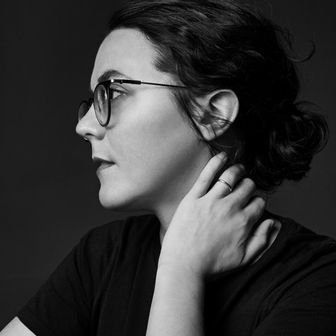
For many who have not experienced it, exposure to postpartum depression comes after the fact: A put-together woman in a prominent position “confesses” to the illness months or years after her affliction has passed. These women are often far enough away that much of the narrative involves “beating” and “coming out of” the illness. But what does postpartum depression feel like from day to day, in the moment? The Cut spoke to five women about feeling “smothered,” uncontrollable rage, obsessive anxiety, and more.
Liz: The anxiety was making me a really negative partner.
Everything I read about postpartum depression and anxiety focused on irrational, fear-based thoughts about your baby — like fixating on them falling down stairs or off a balcony, or not breathing. I honestly didn’t have those kinds of thoughts; my thoughts would spiral to external factors that could impact his quality of life years down the line. I worried constantly about not being able to provide for my child, having him live in an environment of scarcity: I kept imagining our septic tank overflowing and needing to find $10,000 to fix the entire septic field and then getting into debt we’d never get out of. I imagined I would get fired from my job.
The anxiety was making me a really negative partner to my husband, too. At one point, I was telling a friend my husband “wasn’t taking on enough of the household anxiety,” and she kind of said, “Anxiety isn’t something that needs to be taken on by either of you — it’s not something you divvy out.” I was like, “No, you don’t understand — SOMEONE needs to be thinking like this,” which I realize now is … a problem.
It took me five months to get to a therapist. Therapy has helped me realize the source of the thoughts, talk through my own childhood, and work through better ways to transition into equal-partnership parenting. I always tell people therapy shows you things that are probably painfully obvious — it brings awareness to things we have somehow chosen to neglect about our thoughts.
As an aside, my therapist also encouraged me to get off of Facebook. I was using mom groups to try to make mom friends, but seeing others’ posts was contributing to some major anxiety that I never would have thought to feel badly about. My therapist said she had to do the same — get off Facebook — when she became a parent. “It can really normalize pathological thoughts,” she said, which stuck with me. Finding others who are suffering can be comforting, but it doesn’t mean you don’t need professional help.
Melanie: I felt smothered, and heavy, like I couldn’t breathe.
It did not feel like depression so much as a months-long panic attack or adrenaline high (not the fun kind). I remember wanting to just move or run away from where I was. I did actually run a lot, and that helped, but there’s so much sitting still when you have a newborn, especially when you can barely walk.
If postpartum depression had one distinguishing characteristic, it would be that I felt totally like my mind and body were not in my control. My thought patterns were totally irrational, and I felt smothered, and heavy, like I couldn’t breathe. That feeling, along with the inability to sleep, wore me down until I WAS depressed, and, like a cliché, couldn’t stop crying.
The cruelty of this particular biological trick is that you want so badly to be happy and in control, and you want to be enjoying the moment, and everyone keeps telling you that this is the most special time in your life. But instead you’re a bleeding, crying, confused mess. I’m pretty open about having had postpartum depression with my first child, and I’m due to have my second in just a few weeks. My father-in-law recently told me that everyone is “ready and waiting” this time around.
Lauren: How do you tell your mom that you scream at your new baby?
I was 25 when I had my son. I knew about postpartum, but I thought it would mean that I was a little sad. What I got instead was bouts of rage, exhaustion, and general apathy.
I was so angry — and everything set me off. I would scream and swear and just generally carry on. I screamed at my husband, I screamed at my newborn, and I screamed at my reflection in the mirror. Then I’d be so tired and feel like such a failure, I wouldn’t want to do anything. I would lie on the couch for hours in complete silence, doing the bare minimum to care for my son. Why bother showering, right? It wasn’t like my son cared. And who’d want to be intimate with a crazy woman?
In fact, I was pretty sure my husband and son would be better off without me. I often thought what it would take and where I could go so the two of them could be happy together without me ruining things. Of course, then I’d realize where I’d be without them, and work extra hard to be the best wife and mother ever. Of course they wouldn’t acknowledge my effort or see how hard I was trying, because (1) they weren’t in my head, and (2) one of the two people I was trying to win over was an infant. Then I’d get angry and tired, and the cycle would repeat itself over and over again.
I have a wonderful family and had a group of supportive women around me, but I couldn’t even imagine talking to any of them. How do you tell your mom that you scream at your new baby? How do you explain to a friend that, most days, you want to hide under the covers? Most days I had myself convinced I was the worst person imaginable — why would anyone want to help me?
Before my son turned 1, I begged my husband to get a vasectomy because the idea of having another baby terrified me. He was devastated. It’s a wonder we were able to find a doctor willing to do it at all, since my husband wasn’t even 30 at the time.
When my son was 2, I went for my annual checkup and, instead of my doctor, a young, female nurse practitioner was there. She did the regular physical and then ran through some general questions with me. One was, “How are your moods?”
The resulting conversation changed my life and my relationship with my husband and my son, and led to a prescription for a serotonin reuptake inhibitor. It literally felt like weight was taken off me.
My son is 12 now, and my husband and I just celebrated our 15th wedding anniversary. I can honestly say that chance encounter with that nurse practitioner saved my relationship with my son, my marriage, and, very likely, my life.
Sally: Weaning-related depression hit me like a truck.
I’m a lawyer who left a demanding job to stay at home with my now-1-year-old. I have a history of depression and anxiety, and having been through miscarriages before I had my baby, I already had a therapist who specialized in pregnancy-related mental health. On top of that, my mom had late-stage cancer and passed away when my daughter was 2 months old.
I was prepared for the possibility of PPD, but luckily I didn’t get it after my daughter was born. A month after she started eating solid food, though, weaning-related depression hit me like a truck. I didn’t even know that was a thing. It came out of nowhere and descended upon me like a fog that didn’t lift for over a month. I felt intense loneliness, hopelessness, anxiety, and profound exhaustion. It was more intense than any other depression I’d felt before. It felt artificial, like it was coming from somewhere external and smothering my true self. The weaning-related hormone shifts are so powerful and can affect your mental health, which I’d had no idea could happen.
I knew I had to do something to break out of it, but I felt like everything was too hard and wouldn’t help — so why bother? My therapist, husband, and friends all tried to be supportive and encouraging, but nothing worked. This lasted for weeks. Even just taking my daughter to the swings on our block felt like an enormous undertaking.
I was talking to my therapist about medication when I had to travel for a family funeral and leave my baby at home with my husband. Breaking out of my routine snapped me out of depression immediately. The fog just disappeared the day I woke up in a new place. I was worried that it would return when my baby fully weaned, but thankfully it’s never come back. Since then, I’ve stayed attentive to my feelings and made an effort to do more outside the house, which I think has been helpful in keeping the potential loneliness of being a stay-at-home mom at bay.
Tamara: I’d think my daughter and my boyfriend would be better off without me.
I’d read about postpartum depression before, and when it hit me I almost wanted to laugh: Everything I felt was so textbook and predictable. I couldn’t sleep, even though I was exhausted. I cried constantly and became overwhelmed by the simplest tasks, like putting my baby in the carrier to go to the grocery store. My brain was full of violent accidents. Every time I walked by a corner or a countertop, I imagined what it would look like when my baby’s little head smashed against it: the blood that would gush out of his head, how loud he might scream. In the darkest times, I’d think my daughter and my boyfriend would be better off without me, and I’d fixate on bringing a gun into the bathroom. The vision didn’t go beyond that, because I knew I couldn’t do anything to myself while my daughter was alive — and then I’d be consumed with the despair of that. It felt like being impossibly stuck.
I just kept telling myself (and my concerned, then frustrated, boyfriend) that it was “just” a case of classic postpartum depression. At one point I did research a therapist who specialized in PPD and allowed new moms to bring babies to sessions — but, of course, the therapy wasn’t covered by insurance. I told myself paying for it out of pocket was too much of an indulgence, since I was only paid for two weeks of my maternity leave. I thought I could just suffer through until it lifted, and I’m lucky, because it did lift after a few months — but I did suffer. And I’m sure my daughter did, too.


